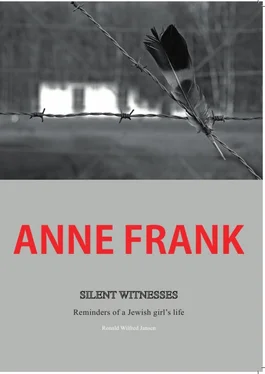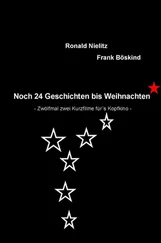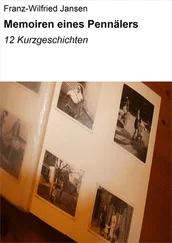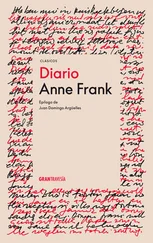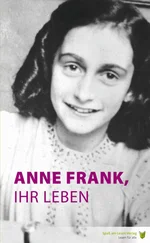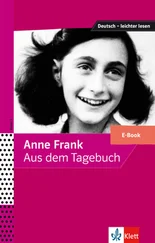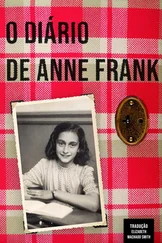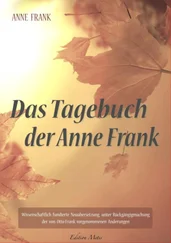During this period, the Frank family bank experienced great difficulties as a result of the various restrictions imposed upon the currency trade. Privately, the Franks also experienced major financial losses; their savings had evaporated due to inflation, and their war shares, in which they had invested considerably with a view to German victory, had become void. 5The pre-WWII patriotic enthusiasm of German Jews can be compared to the current patriotism of Jews in the Netherlands. Most Dutch Jews support the royal family and happily join in singing the national anthem Het Wilhelmus at official gatherings, both domestically and abroad. Notably, however, it was the same in Germany before the onset of WWII. 62 Following the German defeat, many German Jews devoted themselves to supporting democracy and socialism, 7with a great number of them actively involved in interest groups, such as the Reichsbund jüdischer Frontsoldaten (national league of Jewish front soldiers), established in 1919, which looked after the interests of Jewish WWI veterans. Many Jews in Germany also provided support for the Ostjuden, who were subjected to heavy persecutions in Russia. As far as I am aware, the Franks were not (very) active in politics. After WWI, Otto reluctantly took over the bank from his mother and his brother Herbert Frank (1891-1987, hereafter referred to as Herbert). 8Herbert was not a very talented banker, and his eldest brother, Robert Frank (1886-1953, hereafter referred to as Robert), 9was not interested in taking over. 10Otto was not a born banker, either. He had aborted his undergraduate course in economics and, according to Anne, was not particularly good at maths. ‘I flatly refuse to do these foul math problems every day. Daddy Agrees that they’re horrible. I’m almost better at them than he is, though neither of us is much good and we have to fetch Margot all the time,’ Anne wrote whilst in hiding. 11The family bank in Germany was performing poorly. In 1923, Otto opened M. Frank & Zonen—a Dutch branch of the German family bank—in a stately building on a canal in Amsterdam (604 Keizersgracht). This was risky business: there was a dire scarcity of currencies in Germany and various restrictions were in force pertaining to banks that wanted to trade currencies.
This coincided with the failed coup by Adolf Hitler (1889-1945, hereafter referred to as Hitler) on 9 November 1923, and his consecutive brief detainment during which he wrote Mein Kampf , which was to become the National Socialist bible. It was still relatively quiet in the Netherlands.
On 31 December 1923, Otto registered the bank’s Dutch affiliate with the Amsterdam Chamber of Commerce. Otto appointed Johannes ‘Jo’ Kleiman (1896-1959, hereafter referred to as Johannes) as his main accountant. M. Frank and Zonen did not do well; the bank went into liquidation in 1924.
The premises on 604 Keizersgracht 12currently host various companies. The old architecture is still visible in many of its details, such as its letterbox and door knobs. There are many beautiful buildings with a rich history on Keizersgracht.
Otto married 25 year old Edith Holländer (1900-1945, hereafter referred to as Edith) on 12 May 1925, his birthday, in the synagogue in Aachen. Photographs show a radiant couple on their honeymoon in Italy. It was a marriage of convenience, and Edith’s capital was of great use to Otto. Edith received a monthly allowance from her mother Rosalie ‘Rosa’ Holländer-Stern (1866-1942, hereafter referred to as Rosa) from Aachen. 13Otto had been engaged before. 14‘(…) I think Father married Mother because he thought she was the best replacement for his fiancée (...) it cannot be easy for a loving wife to know that she will never occupy the first place in her husband’s heart,’ Anne wrote in her diary. 15After the wedding, the couple took up residence in the home of Otto’s parents at 4 Mertonstrasse in Frankfurt am Main. Otto’s father, Michael Frank (1851-1909, hereafter referred to as Michael), 16had purchased this semi-detached house in 1901. When his father died, his widow, Alice Betty Frank-Stern (1865-1953, hereafter referred to as Alice), was left in charge. The large, stately urban villa was suitable for the well-to-do upper middle class. It was located in an elegant residential area, and had a separate entrance for servants, 17three balconies at the front, a dome, a central tower, and a large garden.
Otto and Edith had two daughters. Their first child, Margot Betti Frank (1926-1945, hereafter referred to as Margot), was born on 16 February 1926. Halfway through 1927, when Margot had just started walking, the family rented an apartment in a villa at 307 Marbachweg in the Betramshöhe area on the outskirts of Frankfurt am Main in the Dornbusch district—approximately three miles north-east of Mertonstrasse. 18The rent was affordable for the Franks. 19The family lived at 307 Marbachweg, which was a semi-detached home like 4 Mertonstrasse, until late March, 1931. This large residence remains to this day, situated on a crossroads in a Frankfurt 2 am Main suburb. It was built by its former landlord with the support of the Frankfurt am Main Teachers’ Association.
The Franks inhabited the left side of the complex. The house actually comprised two separate living spaces, one on the first floor and one on the second, which were connected by a staircase. The family’s living room, dining room and library were downstairs. Otto and Edith were not intellectuals, but they did read widely. I suspect Otto was not very interested in Jewish history. In 1922, the Museum Jüdischer Altertümer 20opened in Frankfurt am Main (the Museum of Jewish Antiquities at 14/15 Untermainkai). I do not know whether the Franks visited this museum (with any interest).
In addition, the Franks’ residence contained a kitchen, bathroom, and a room for Edith. The small room was furnished with Edith’s elegant writing desk, which she had brought from Aachen, and a bookcase in which she kept her Hebrew prayer books. Otto was not interested in Jewish customs or the Torah. Edith’s family celebrated Jewish holidays, ate kosher foods 21and were prominent members of the Jewish community in Aachen. I cannot tell whether Otto’s and Edith’s parent would have gotten along well.
Otto and Edith’s bedroom, Margot’s bedroom, Edith’s study and the maid’s room were upstairs. The guest room at the back of the house had a balcony with potted flowers. Edith loved flowers. At the back of the Marbachweg residence there was an entrance leading to the basement and a play area.
Edith’s parents and her brothers, Julius Holländer (1894-1967, hereafter referred to as Julius) and Walter Holländer (1897-1968, hereafter referred to as Walter), often came to visit from Aachen. Anne and Margot’s uncles would regularly take them by car to their grandmother in Aachen.
The landlord resided on the ground floor of number 305; the first floor was inhabited by the Stab family. Their neighbours at number 303 were the Naumanns.
On 12 June 1929, when Margot had just turned three, Anne was born in the Klinik des Vaterländischen Frauenvereins in der 2 Eschenheimer Anlage 22in Frankfurt am Main—a joyful family occasion.
In summer, the family liked to sit on the balcony at the back of the house, which overlooked a small garden and the street. The children would swing or play in the Stabs’ sandpit. The Marbachweg area was a green area with plenty of space for children to play.
In October 1929, the year of Anne’s birth, share prices at Wall Street crashed, which initiated a worldwide economic crisis that would last for many years. Tens of millions of people suffered because of unemployment and poverty—not only in America but also in Europe. Germany was afflicted the most by the crisis because of the burdensome WWI compensatory payments. The global crisis also severely affected the family bank.
Читать дальше
